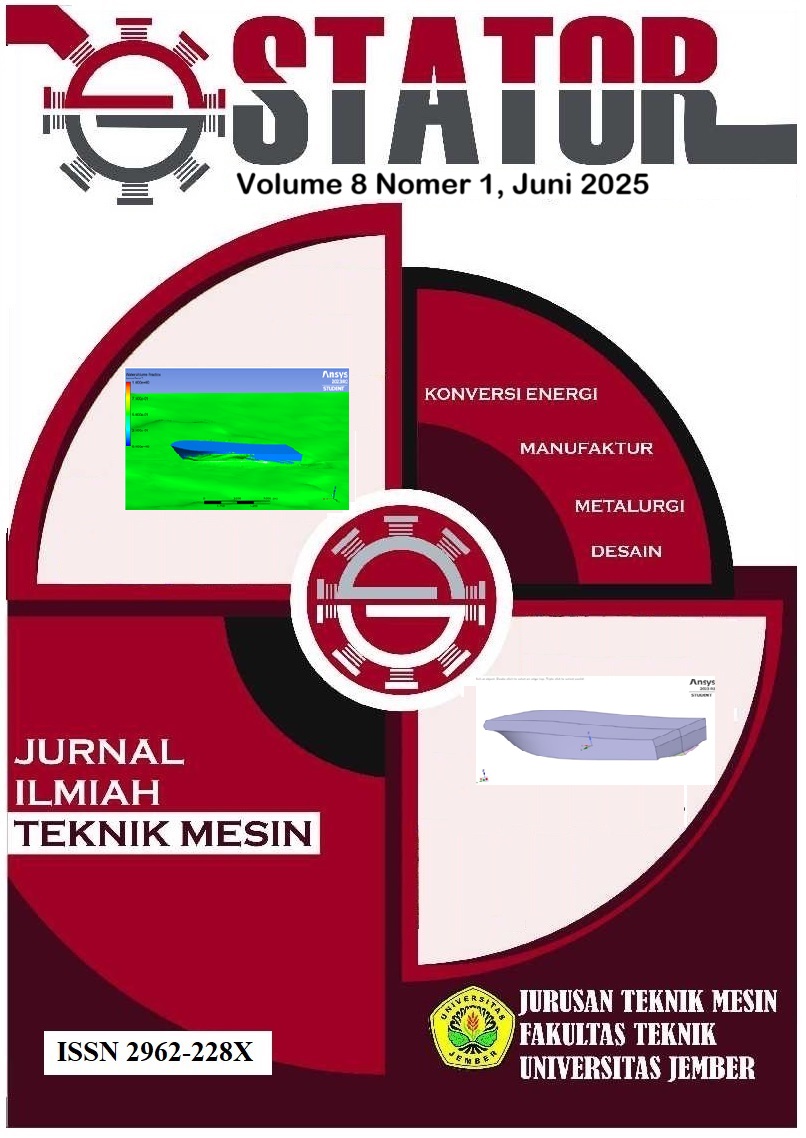PENGARUH PENGGUNAAN CAIRAN PENDINGIN (DEBIT 75 L/h) TERHADAP EFISIENSI PANEL SURYA MONOCRYSTALLINE 20 WP
Abstract
Indonesia still relies on the use of energy from non-renewable sources, especially oil and coal. However, the supply of energy from fossil sources is decreasing. The energy conversion process in solar panels causes an increase in temperature, especially in conditions of intense sunlight and hot weather. High temperatures can accelerate the degradation of materials in solar panels. Therefore, a cooling system needs to be developed to lower the temperature of the solar panels to produce electricity efficiently. This study aims to examine how the efficiency of solar panels can be affected by cooling fluids. The experimental method is used by setting the solar panels at an angle of 30°. Data is collected during sunny weather conditions with sunlight levels above 2000 lux. The solar panel used is a 20 WP monocrystalline type. The recorded data includes several parameters, namely current, voltage, light intensity, and solar panel temperature. The results indicated that solar panels with cooling had a lower surface temperature compared to solar panels without cooling. In addition, cooled solar panels have a higher efficiency than uncooled solar panels. Using a cooler with a certain discharge on the surface of a solar panel can increase efficiency significantly.
Keywords: Cooling system, Solar Energy, Solar Panel, Efficiency


